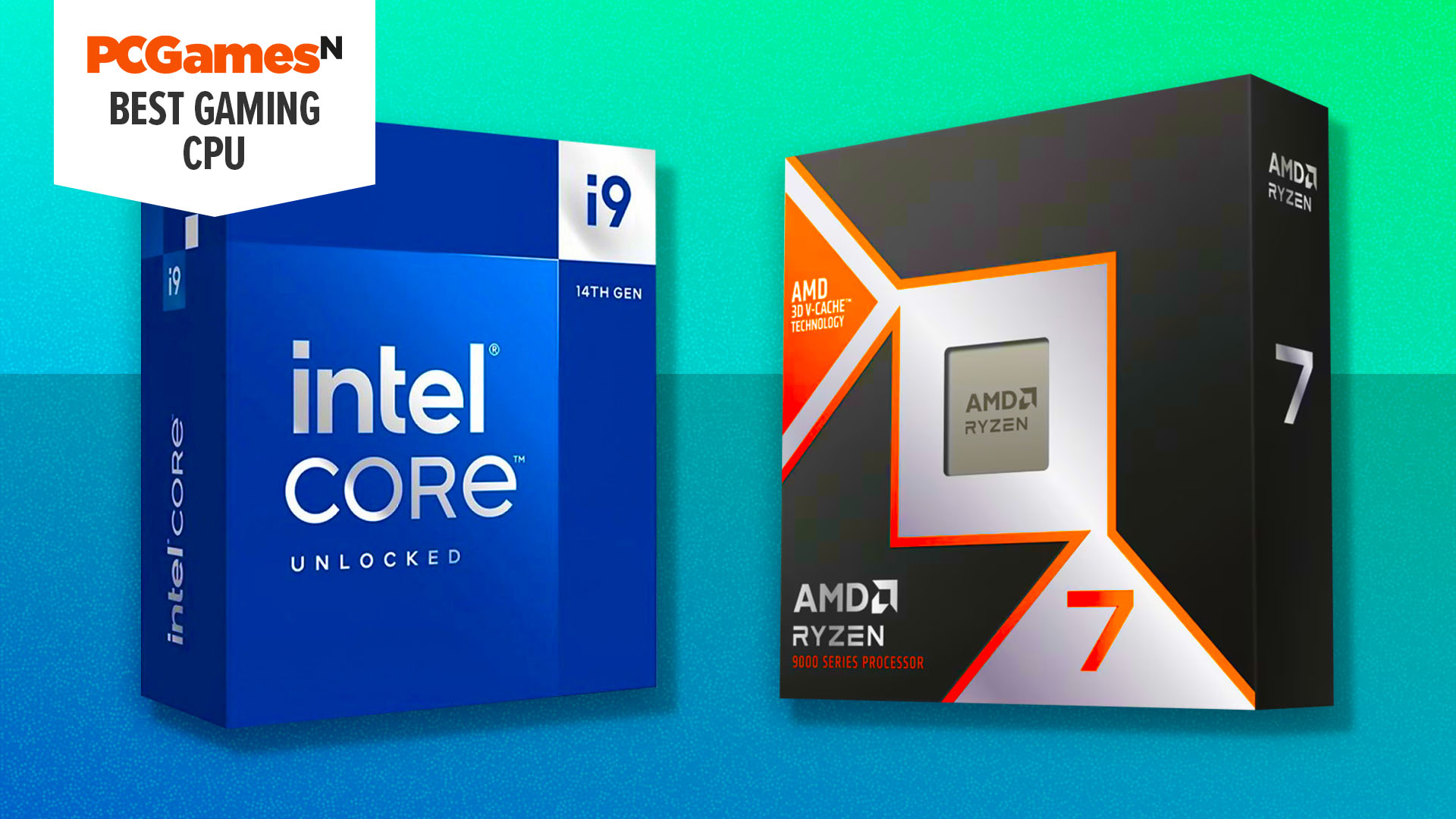
Your choice of processor will fundamentally affect your PC’s frame rates, so you want to make sure you buy the very best gaming CPU you can afford when you’re speccing up a new rig. It’s your CPU that sets up the frames for your GPU to render in games, making it the foundation of your gaming PC hardware. This is particularly true in the current climate, where there is a substantial difference in the gaming performance of some of the latest CPUs.
The two main players are AMD and Intel, and there are now substantial differences between the two companies’ CPUs when it comes to gaming. On one level, you’re now spoiled for choice when picking the perfect processor for your gaming PC, but you want to make sure you get this choice absolutely right, and that’s why we’re here to make your search easier.
The AMD Ryzen 7 9800X3D is the current gaming champ in our own benchmarks, with its predecessor, the 7800X3D a close second. However, the Intel Core i9 14900K still offers solid gaming performance, while also being much faster at other non-gaming tasks, such as video encoding and rendering, making it a better all-rounder. You’ll need to make sure you flash the BIOS on your motherboard to the latest version for this CPU, though, to make sure it has the latest Intel CPU fix, and you’ll also need to make sure you have a strong CPU cooler and power supply.
We currently don’t recommend the latest Intel Arrow Lake chips for gaming, however. As we found in our Core Ultra 7 265K review, while these CPUs are great for heavily multi-threaded work, such as 3D rendering, and they’re very power-efficient, they’re substantially slower than AMD’s latest chips, and Intel’s last-gen options, when it comes to gaming.
We suggest going for a CPU with at least six cores for gaming, and in most cases more than eight cores is overkill. Hexacore chips are now the standard among gamers, and a growing number of AAA PC games expect as much. There are great current generation options that fit this bill, such as the AMD Ryzen 5 7600X, but if you’re on a tight budget, even a cheap CPU such as the Intel Core i5 12400F will do the job fine for a basic gaming PC.
Why you can trust our advice ✔ At PCGamesN, our experts spend hours testing hardware and reviewing games and VPNs. We share honest, unbiased opinions to help you buy the best. Find out how we test.
Best gaming CPU:
How to choose a CPU for gaming
Once you’ve figured out your budget, choosing the right CPU for your system comes down to what you plan to use it for. If you want to play games at the highest frame rates possible in first-person shooters, then AMD’s latest X3D chips are ideal. They have a massive stack of cache that sits above (or below, in the 9800X3D) the CPU cores, reducing the need for your CPU to get data from your system RAM, and our benchmarks show this has a big impact on gaming performance.
If you can’t afford an X3D CPU, or you’re looking more for an all-rounder than a pure gaming CPU, then the next big metric to look at is the clock speed. Don’t get fooled into thinking you need 16 or 24 cores for gaming – eight is more than enough, and six is fine, but the faster the clock speed, the faster your CPU will set up frames for your graphics card.
Intel’s 12th-gen to 14th-gen Core i5 CPUs are all fine for gaming, and models with faster clock speeds will be quicker in games. Meanwhile, AMD’s Ryzen 5 7000-series chips are all solid in games, as are the company’s Ryzen 5000-series X3D chips, which you can use to upgrade an old Socket AM4 AMD machine if you don’t want to buy a whole new PC.
If you really want to save some money, then it’s also worth considering an AMD APU, which not only has a CPU inside it, but also a basic-level Raden GPU, meaning you don’t need to buy a separate graphics card. These chips, such as the Ryzen 5 8600G, can cope with basic gaming at 1080p with low settings, but they’re not as quick as AMD’s full-fat CPUs if you do upgrade to a full graphics card at a later date.
FAQs
How we test the best gaming CPUs
There are a lot of gaming CPUs on the market, and it can be hard to know which processors are genuinely worth your money. To help you decide which CPU is right for your system and budget, we evaluate each chip’s gaming capabilities using a solid base spec for our test rig.
This comprises an Nvidia GeForce RTX 4080 Founders Edition graphics card, a Corsair H100x Elite 240mm AIO cooler, a Corsair RM1000x PSU, 32GB of G.Skill TridentZ 5 Neo RGB 6,000MHz, CL28 RAM, and a 2TB WD Black SN850X SSD. We also test with the very latest version of Windows,
When we test gaming CPUs, our benchmarks include our usual suite of PC games, including Cyberpunk 2077, Far Cry 6, F1 24, and Total War: Warhammer 3. We also test application performance using Handbrake for video encoding, and Cinebench R24 to assess rendering performance. In addition, we observe what temperatures the processor hits under load, and note how long it can maintain its advertised boost clock speeds.
Can I upgrade my CPU?
To upgrade the CPU in your gaming PC, you’ll need to physically swap it out for one of the more powerful processors in this list. It’s more straightforward than you’d think, provided you have a compatible chip, an adequate cooling solution, and the right tools.
Check that a new CPU is compatible with your motherboard before upgrading. Intel’s compatibility tool lets you look up any Intel processor and view all compatible motherboards, while AMD’s search tool does a similar thing.
When you’re ready, our seven-step CPU upgrade guide has plenty of advice on installing a new processor.
When to upgrade a gaming CPU
There isn’t a set amount of time that a CPU will last you, but there are several ways to determine the best time to replace your CPU. Either you’ll find that your current system has slowed and is no longer meeting your needs, you have a fast processing speed and want to keep it that way, or you want to futureproof yourself with the latest processor.
If you’re unsure whether the CPU is the weak link in your gaming machine, there are tools to help you figure it out. CapFrameX and Rivatuner Statistics Server can display CPU and GPU loads when you boot a game with it running in the background. If your GPU hovers around 90-100%, upgrading to the best graphics card you can will be better than a CPU upgrade.
What should CPU usage be when gaming?
In a balanced system (i.e. a PC with a CPU and GPU of a similar caliber, think RX 7700 XT and Ryzen 5 7600 or RTX 4090 and Core i9 14900K) your CPU usage will largely depend on the types of games you’re playing.
Certain genres, such as RTS games, will lean more heavily on the CPU as more computational performance is required to manage things like artificial intelligence. That said, more often than not, your GPU usage will be at 100% long before your processor is but higher frame rates (120+) will put more strain on it.
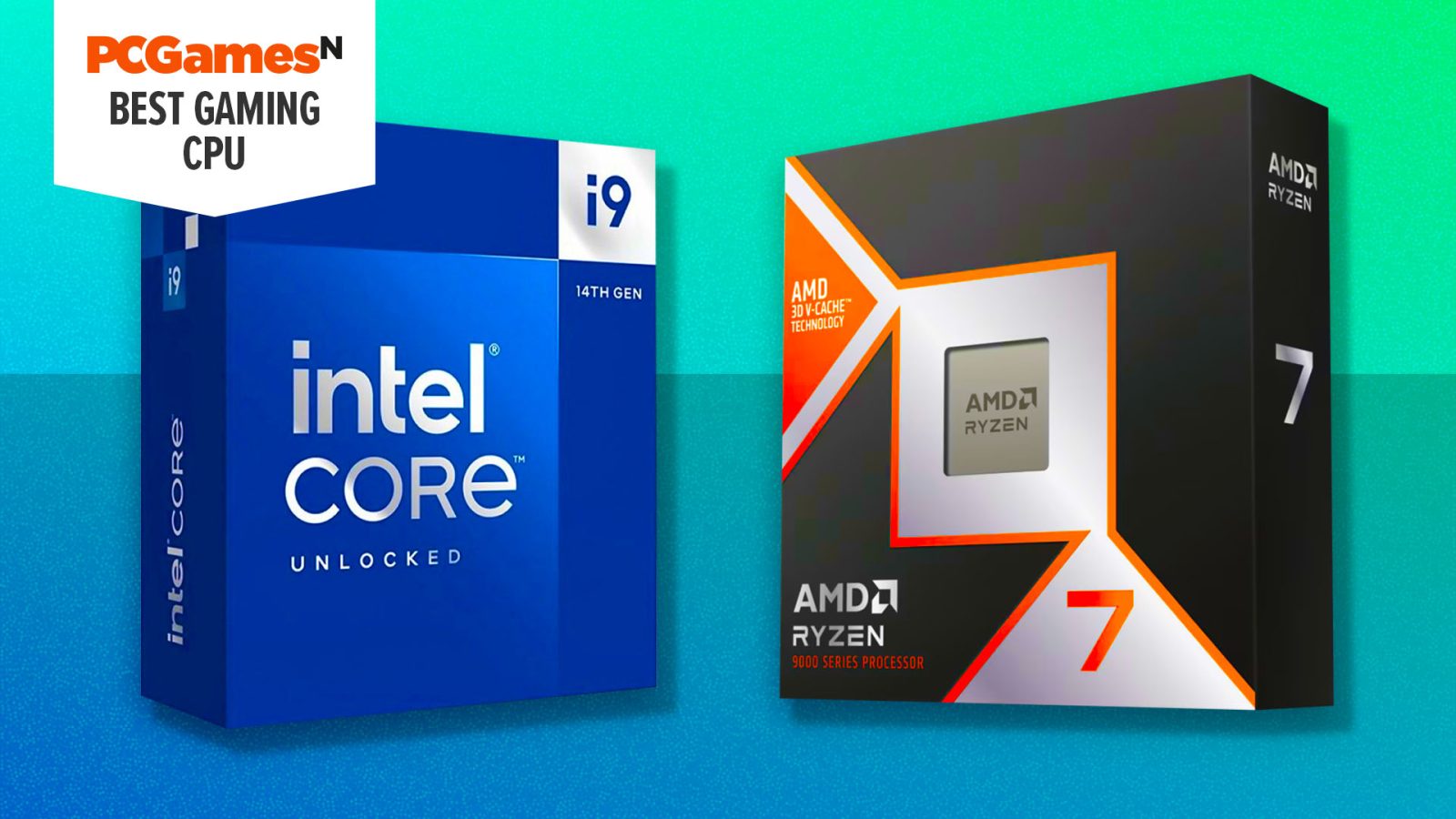






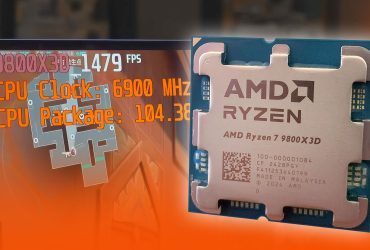
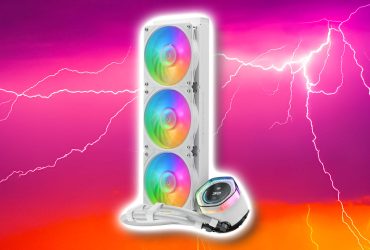
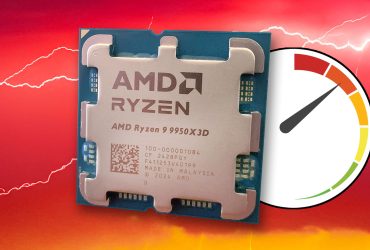
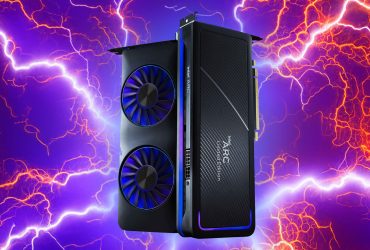
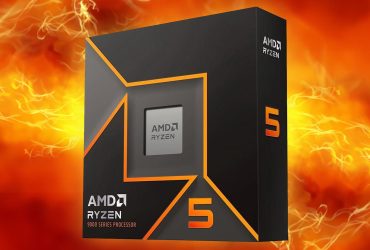
Leave a Reply